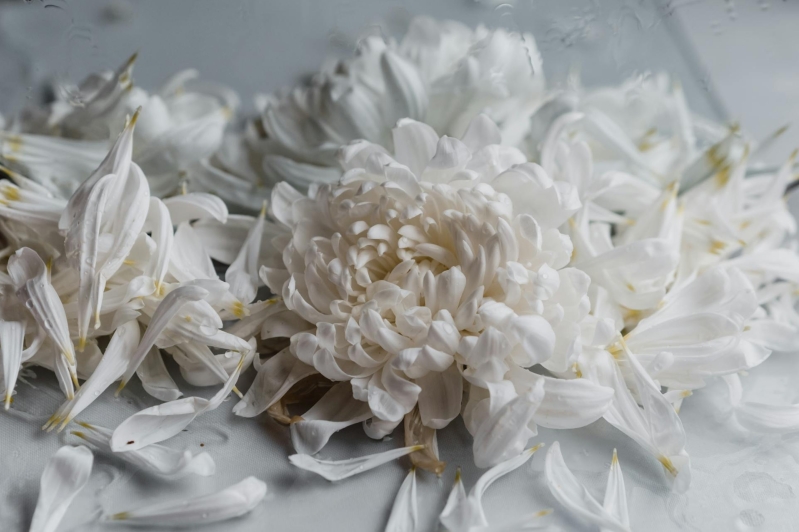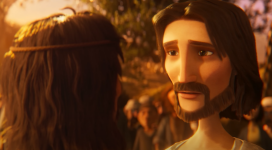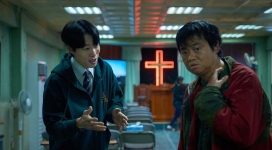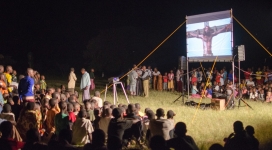
For Mandarin readers, Chiung Yao is likely a familiar name. Even if one hasn’t read her books or watched the TV adaptations of her works, they’ve probably heard of her.
As someone born in the late 1980s, I grew up during a time when both Chiung Yao and Jin Yong left an indelible mark on my peers. Chiung Yao’s My Fair Princess (还珠格格) and Romance in the Rain (情深深雨蒙蒙) were companions during several of my idle summers. Her romance novels and their adaptations influenced many but also, regrettably, misguided many. The distorted views on marriage and love she propagated have disrupted numerous families' happiness.
On December 4, Chiung Yao shocked many by committing suicide in her home in New Taipei City. Ironically, her farewell letter implored young people not to give up on life easily but to strive to become strong individuals.
Here we have someone who ended her own life, advising others not to give up on theirs; someone too fragile to endure her own struggles, yet encouraging others to live with strength.
In her final letter, posted on social media, Chiung Yao wrote:
“Dear friends and confidants, please do not cry, grieve, or feel sorry for me. I have ‘flown away lithefully!’ ‘Lithe (翩然)’ is my favorite word—it represents an autonomous, carefree, and liberated ‘flight,’ elegant and light. I have shed the shell that increasingly brought me suffering and have ‘lithefully’ transformed into snowflakes to fly away!”
What Chiung Yao sought was autonomy, carefreeness, and freedom. To her, suicide became a symbol of freedom—similar to Sha Bai, who recently gained attention for traveling to Switzerland to undergo assisted suicide. But I am unsure where Chiung Yao believed she would fly to. Did she confirm that the destination she was heading toward would be better than her current state? How could she be certain that the world after death would be less painful than the one she left behind?
In her farewell letter, Chiung Yao also wrote:
“This is my wish: ‘Death’ is an inevitable journey for everyone and the final ‘great event’ of life. I do not want to resign myself to fate, to wither and decay slowly. I want to take charge of this final great event.”
The crucial question is: can she really take charge? Is she truly in control? She could choose to end her life, but could she dictate what happens afterward?
She further wrote:
“The Creator’s design for the life process isn’t very good. When people grow old, they all have to endure a period of painful ‘weakness, degeneration, illness, hospital visits, treatment, and decline.’ This period can be long or short, but for those who are destined to die of old age, it is an enormous torment. Worse yet, one might end up as a bedridden ‘elder relying on life-support machines.’ I’ve witnessed such misery, and I do not want that kind of ‘death.’”
Both Chiung Yao and Sha Bai faced the same issue: they didn’t understand the meaning of life. They valued life only in its youth, beauty, and health but failed to grasp its worth in old age, frailty, or sickness. The root problem lies in their lack of relationship with their Creator. They didn’t know the purpose of life, focusing only on what they wanted or liked.
The greatest human suffering is not physical decline, frailty, illness, or hardship. The greatest suffering is enduring these trials without understanding their meaning and value.
The cycle of birth, aging, illness, and death is not meaningless. Just as life in its youth and health has purpose, so does life in its sickness and frailty.
First, the Creator’s design is perfect. Genesis tells us that God saw all that He had made, and it was very good (Genesis 1:31). Everything He created is beautiful and good. Because He is the Creator—not just “Heaven” but God Himself—He is wise, powerful, and loving. It is humanity’s misunderstanding that leads people to think it isn’t good enough.
Second, sin disrupted this goodness. Humanity’s rebellion against God shattered the perfect design. The suffering, illness, and death we experience are the consequences of sin.
Yet even in this brokenness, there is meaning and value. Although humans sinned, God continues to love us. The value and meaning of life are not defined by humans or our desires but by the will and plan of our Creator.
Third, birth, aging, illness, and death are integral parts of life. They are essential to being human.
When God first created humanity, we were whole, free from the cycle of aging and death. However, due to sin’s curse, all humans now experience these realities, which constitute the completeness of our humanity.
We cannot reject life’s less desirable aspects by choosing to end it in the name of freedom or autonomy. That is not elegance or courage; it is escapism and a denial of life’s wholeness.
The crux of Chiung Yao’s struggle was her ignorance of life’s origin and destination. She believed she could take charge of her life but overlooked that her existence ultimately rests in the hands of the Creator. While we may temporarily choose to end our lives, we cannot control what comes after.
True courage is not escaping life’s ugliness, imperfections, and hardships but facing them head-on. Real grace and bravery involve embracing the entirety of life—its highs and lows.
This courage does not come from within ourselves. By relying on our own strength, we can only feel fear, panic, and despair. Our source of courage lies in the Creator, who gives life meaning and value even amid suffering.
The Bible tells us:
“It was good for me to be afflicted so that I might learn your decrees” (Psalm 119:71).
Human beings fear suffering, failure, illness, and pain because they reveal our limitations, helplessness, and dependence—truths we are reluctant to accept. These realities confront the root of our sin, our rebellion against God’s law.
The Bible also promises:
“Blessed is the one who perseveres under trial because, having stood the test, that person will receive the crown of life that the Lord has promised to those who love him” (James 1:12).
Chiung Yao, like Sha Bai, likely feared not only death but also the absence of meaning in their suffering, a fear even greater than their dread of death itself.
Yet God assures us that all these trials are meaningful. They teach patience, submission, humility, and dependence on Him.
True grace and courage are not about accepting youth and health while rejecting aging and sickness. Instead, they are about enduring life’s trials with strength, respecting its value and meaning.
Self-determined death—whether framed as freedom or courage—is escapism. It denies life’s inherent value and the reality of a Creator who governs all.
Ultimately, Jesus Christ provides the only path to understanding our true selves and life’s meaning. He accepts us completely, granting purpose to every stage of life, whether young or old, healthy or sick.
He loves us and died on the cross for our sins. As Matthew 11:28-30 says:
“Come to me, all you who are weary and burdened, and I will give you rest. Take my yoke upon you and learn from me, for I am gentle and humble in heart, and you will find rest for your souls. For my yoke is easy and my burden is light.”
In our hardships, we don’t have to face them alone. In Christ, we find hope because He carries our burdens and walks with us.
More importantly, Christ has borne our greatest burden—our sin. By coming to Him, acknowledging our sins, and placing our trust in Him, we can face the trials of life with the hope of eternal life.
True courage and grace lie in surrendering our lives to the One who loves us, trusts us, and redeems us. Only then can we face suffering, death, and eternity with confidence and peace.
***
Original article posted on Pastor Calvin Qin's (秦路) personal blog, Defending the True Path in Courage (勇守真道) and is reposted with permission by the Gospel Herald. Edits for clarity and tone were made in the process of translating the original Chinese text into English.
Calvin Qin: Pastor Calvin Qin ha four young children with his wife. He is a visiting pastor at the Faith Chinese North America Baptist Church (北美浸信会信友堂), ministering mainly to young families and teens in the church. He had previously planted the Chinese Community Church of Indianapolis Northwest, and is currently pursuing a D.Min. at the Canadian Chinese School of Theology Vancouver.







